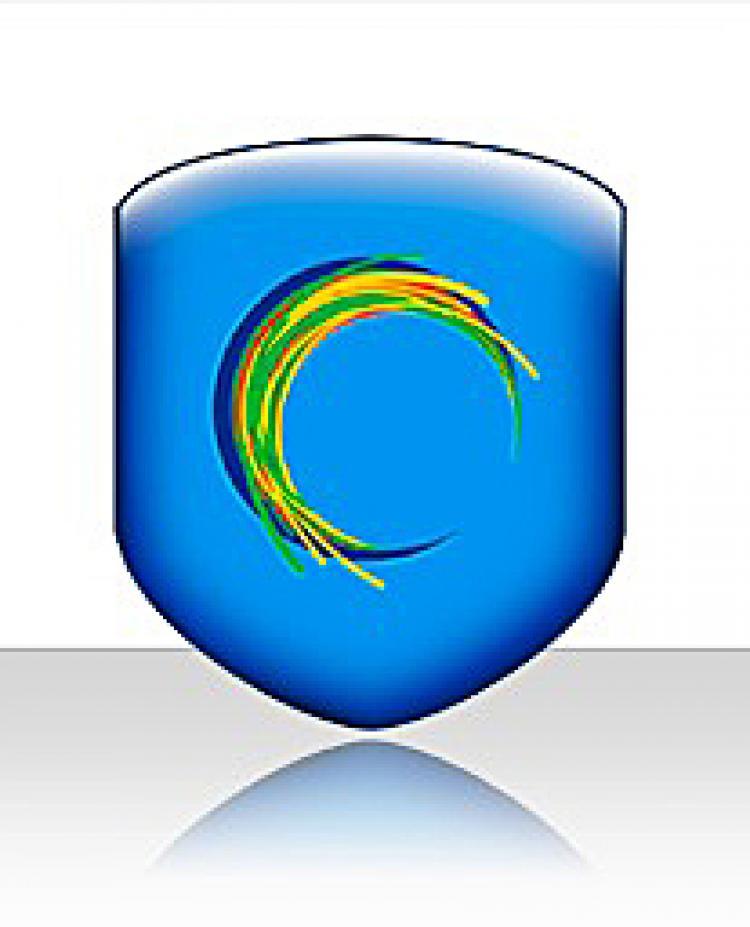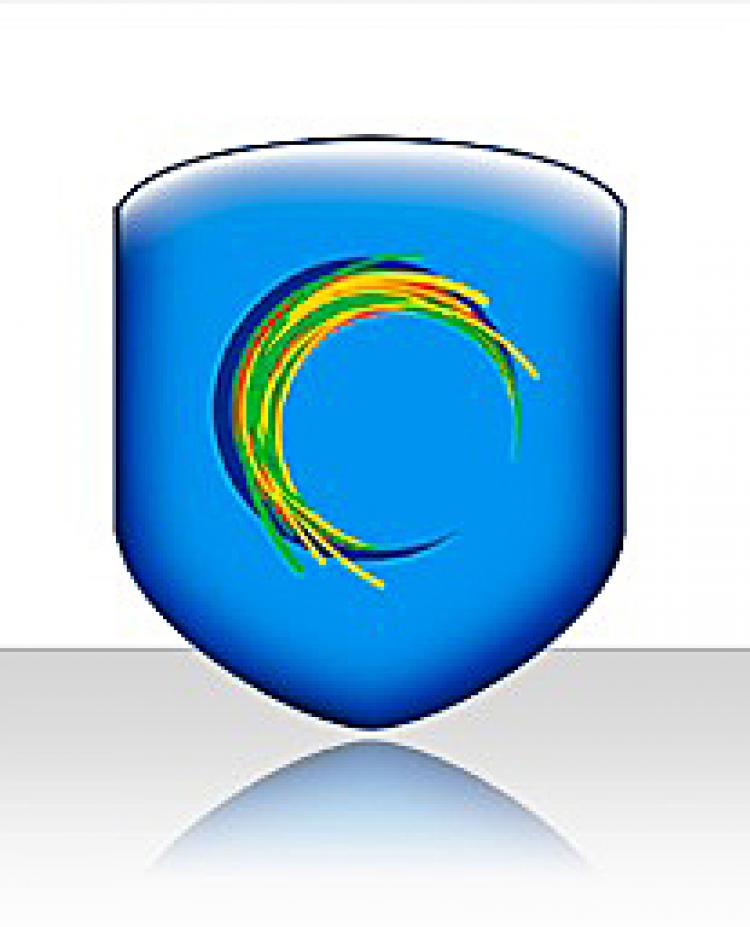Everything you do online is being watched and recorded. Every website you visit knows what you’re doing, and every search engine has a log of what you’re looking for. Advertisers use this information for ads targeted at what every user is interested in, but that same information can easily fall into the wrong hands.
There are ways to hide this information, but for the common user the process would be difficult—on par with figuring out a Rubik’s Cube.
In 2005, David Gorodyansky, 29, saw the rising problem. Fresh out of college, he and a friend took a hard look at the Internet and stood aghast at the sheer volume of user data floating around the Web. “There are two billion people on the Internet and all of their information is being collected,” said Gorodyansky in a phone interview.
“My main concern was that there is a ton of data online about users—about all of us. Especially as more people are using public Wi-Fi networks, there is a huge amount of data that can be easily compromised,” he said.
He and Eugene Malobrodsky decided to solve the problem. What they came up with was a free security system that allows users to browse the Web anonymously while protecting their data. They founded AnchorFree, with their security product, Hotspot Shield, leading the way.
The application places a shield icon on the user’s desktop. When the user turns it on, it will make every website on the Internet as secure as a banking website by encrypting it. It will convert Web pages from the regular HTTP, seen at the beginning of a Web address, to HTTPS. The “S” at the end stands for “Secure.”
“What that means is basically your Facebook page, your e-mail, your search, everything you do becomes just as secure as your banking site,” Gorodyansky said.
At the same time, Hotspot Shield directs users through its own system, throws out their personal data, and gives them new identities. When they browse the Web, their real names and information will then be hidden, replaced instead by anonymous identities associated with AnchorFree. This works by discarding the user’s IP address and assigning a new one.
Installing the software is easy. It can be activated by simply clicking its “Connect” option, and users can turn the service on and off at their leisure.
Internet privacy is becoming a huge issue in today’s world, and there is heavy debate currently around the subject.
The U.S. Senate Committee on Commerce, Science, and Transportation held a hearing on online consumer privacy on March 16, which heralded deliberations on consumer privacy by the 112th Congress. The issue “is front and center on the Commerce Committee’s agenda,” states a Senate press release.
“I want to know if the privacy protections we have in place are enough, or whether Congress needs to step in and do more. As Chairman, I’m committed to doing everything I can to protect consumers’ privacy,” stated the committee’s chairman, John Rockefeller, in a press release.
The issue of consumer privacy boils down to a few key areas.
Every user on the Web is assigned an Internet Protocol (IP) address, which works as a kind of online name-card, telling everyone who the users are and where they live. Using this data, advertisement companies can watch the online activity of users through their IP addresses—what links they click and what products they look at. Advertisers also install what are known as “Super Cookies” on computers, which can monitor this data and relay it back.
Criminals also have interest in this data. Public Wi-Fi networks are an open show for a user’s private information. While browsing the Web at a coffee shop or while checking e-mail at an airport, each user is sharing a wireless Internet network with other computers. A skilled intruder can use that same, unencrypted system to grab data from unwitting users.
“Everyone sitting next to you could see everything you’re doing if they wanted to. So a lot of people use us for that as well,” Gorodyansky said.
The problem is that companies rely on it to generate their ads. It is what allows companies to create ads on websites that are tailored to what each user is interested in. Without this data, many websites would have to rethink ways to fund themselves.
Privacy companies and advertisers tend to be at each other’s throats over how the Internet should be run. Privacy systems often block out advertisers altogether, and advertisement companies try to gather as much user information as they possibly can.
Gorodyansky believes he has the solution. “We try to make those two things work together—making consumers private while at the same time making advertising relevant,” he said.
Hotspot Shield lets advertisers track the anonymous IP address it gives to each user. The user’s personal data is then kept secure, and the advertisers can still serve their ads. The system is also funded by placing a small ad along the top of each Web page.
“All the advertisers can still see that an anonymous user is going and looking for furniture, looking for cars, cell phones, whatever. So the targeting is not disrupted in any way, but the user’s identity is protected,” Gorodyansky said.
There are ways to hide this information, but for the common user the process would be difficult—on par with figuring out a Rubik’s Cube.
In 2005, David Gorodyansky, 29, saw the rising problem. Fresh out of college, he and a friend took a hard look at the Internet and stood aghast at the sheer volume of user data floating around the Web. “There are two billion people on the Internet and all of their information is being collected,” said Gorodyansky in a phone interview.
“My main concern was that there is a ton of data online about users—about all of us. Especially as more people are using public Wi-Fi networks, there is a huge amount of data that can be easily compromised,” he said.
He and Eugene Malobrodsky decided to solve the problem. What they came up with was a free security system that allows users to browse the Web anonymously while protecting their data. They founded AnchorFree, with their security product, Hotspot Shield, leading the way.
The application places a shield icon on the user’s desktop. When the user turns it on, it will make every website on the Internet as secure as a banking website by encrypting it. It will convert Web pages from the regular HTTP, seen at the beginning of a Web address, to HTTPS. The “S” at the end stands for “Secure.”
“What that means is basically your Facebook page, your e-mail, your search, everything you do becomes just as secure as your banking site,” Gorodyansky said.
At the same time, Hotspot Shield directs users through its own system, throws out their personal data, and gives them new identities. When they browse the Web, their real names and information will then be hidden, replaced instead by anonymous identities associated with AnchorFree. This works by discarding the user’s IP address and assigning a new one.
Installing the software is easy. It can be activated by simply clicking its “Connect” option, and users can turn the service on and off at their leisure.
Online Privacy
Internet privacy is becoming a huge issue in today’s world, and there is heavy debate currently around the subject.
The U.S. Senate Committee on Commerce, Science, and Transportation held a hearing on online consumer privacy on March 16, which heralded deliberations on consumer privacy by the 112th Congress. The issue “is front and center on the Commerce Committee’s agenda,” states a Senate press release.
“I want to know if the privacy protections we have in place are enough, or whether Congress needs to step in and do more. As Chairman, I’m committed to doing everything I can to protect consumers’ privacy,” stated the committee’s chairman, John Rockefeller, in a press release.
The issue of consumer privacy boils down to a few key areas.
Every user on the Web is assigned an Internet Protocol (IP) address, which works as a kind of online name-card, telling everyone who the users are and where they live. Using this data, advertisement companies can watch the online activity of users through their IP addresses—what links they click and what products they look at. Advertisers also install what are known as “Super Cookies” on computers, which can monitor this data and relay it back.
Criminals also have interest in this data. Public Wi-Fi networks are an open show for a user’s private information. While browsing the Web at a coffee shop or while checking e-mail at an airport, each user is sharing a wireless Internet network with other computers. A skilled intruder can use that same, unencrypted system to grab data from unwitting users.
“Everyone sitting next to you could see everything you’re doing if they wanted to. So a lot of people use us for that as well,” Gorodyansky said.
The problem is that companies rely on it to generate their ads. It is what allows companies to create ads on websites that are tailored to what each user is interested in. Without this data, many websites would have to rethink ways to fund themselves.
Privacy companies and advertisers tend to be at each other’s throats over how the Internet should be run. Privacy systems often block out advertisers altogether, and advertisement companies try to gather as much user information as they possibly can.
Gorodyansky believes he has the solution. “We try to make those two things work together—making consumers private while at the same time making advertising relevant,” he said.
Hotspot Shield lets advertisers track the anonymous IP address it gives to each user. The user’s personal data is then kept secure, and the advertisers can still serve their ads. The system is also funded by placing a small ad along the top of each Web page.
“All the advertisers can still see that an anonymous user is going and looking for furniture, looking for cars, cell phones, whatever. So the targeting is not disrupted in any way, but the user’s identity is protected,” Gorodyansky said.






